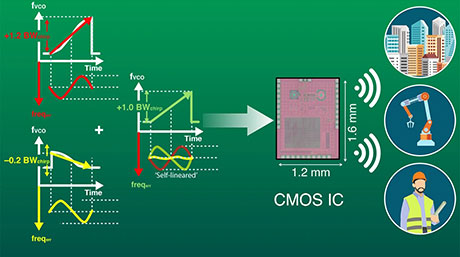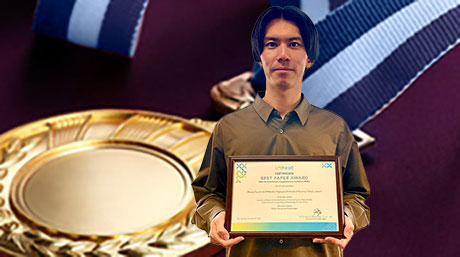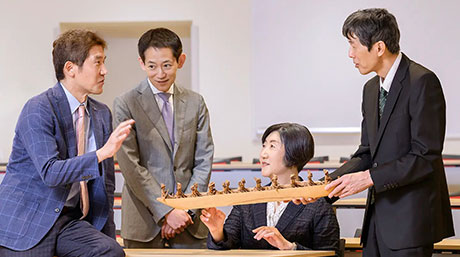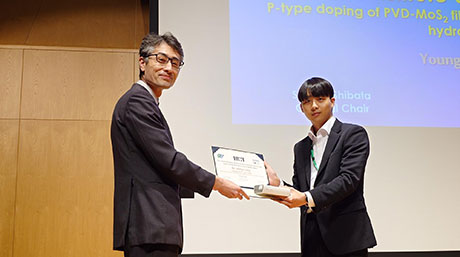Electrical and Electronic Engineering News
Tokyo Tech and QST partner to develop quantum technology
QST laboratory to be established at Tokyo Tech focusing on society-driven quantum sensor development
Tokyo Institute of Technology (Tokyo Tech) and National Institutes for Quantum and Radiological Science and Technology (QST) entered into a comprehensive collaboration agreement on July 12, 2018 to address societal needs through the advancement of quantum science and technology.
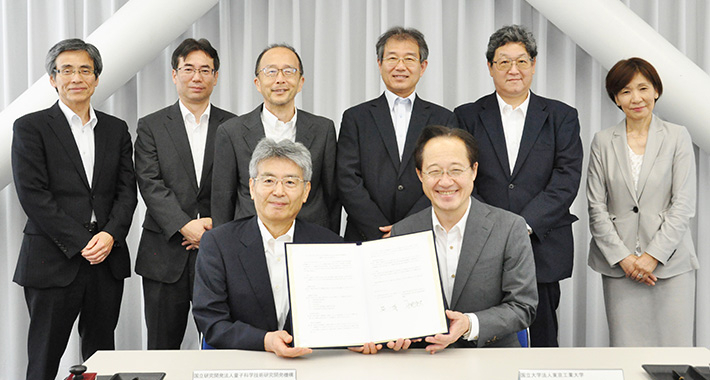
Partnership Ceremony at Tokyo Tech on July 12
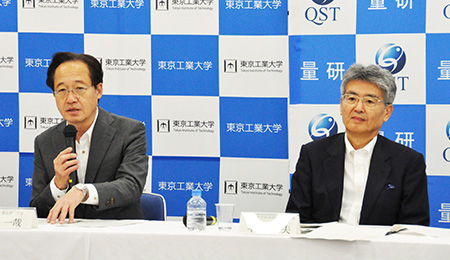
Tokyo Tech President Kazuya Masu (left) and QST President Toshio Hirano (right)
Research and development in quantum science and technology1, including quantum computers, quantum cryptography, and solid-state quantum sensors, continue to progress, attracting worldwide attention. Quantum science has the potential to realize fundamental technology that will lead to creation of new value and industries, as well as help in achieving Sustainable Development Goals (SDGs).
Tokyo Tech has been at the forefront of quantum research, particularly through theoretical advances in quantum computing by Professor Hidetoshi Nishimori![]() , and development in quantum sensors2 including quantum inertial sensors and solid-state quantum sensors. QST, also a pioneer in quantum science and technology, has promoted cutting-edge research and industrial applications in the fields of radiology, quantum beam science, and nuclear fusion. Through the Tokyo Tech-QST agreement, the two organizations will combine research capabilities, resources, and talent to lead the world in the study and application of quantum science and technology.
, and development in quantum sensors2 including quantum inertial sensors and solid-state quantum sensors. QST, also a pioneer in quantum science and technology, has promoted cutting-edge research and industrial applications in the fields of radiology, quantum beam science, and nuclear fusion. Through the Tokyo Tech-QST agreement, the two organizations will combine research capabilities, resources, and talent to lead the world in the study and application of quantum science and technology.
Linking Tokyo Tech research on materials, devices, and quantum sensors with QST research on materials using quantum beam science will make possible wide-reaching advances, from the creation of new materials to the application of quantum devices. In solid-state quantum sensors, a highly competitive global industry, Tokyo Tech professor Mutsuko Hatano![]() and QST project leader Takeshi Ohshima will collaborate to develop novel sensors based on diamond nitrogen-vacancy centers (NVC). These sensors will offer high sensitivity, room-temperature operation, and scalability from nano to macro levels.
and QST project leader Takeshi Ohshima will collaborate to develop novel sensors based on diamond nitrogen-vacancy centers (NVC). These sensors will offer high sensitivity, room-temperature operation, and scalability from nano to macro levels.
The QST Quantum Science and Technology Industry-University Collaboration Laboratory "QST Co-Creative Laboratory for Quantum Technologies at Meguro" will be established on August 1, 2018 at Tokyo Tech's Ookayama campus, becoming a base for solid-state quantum research. The laboratory will be staffed by approximately 30 researchers from both organizations. Collaborations with industry will also be pursued, with the goal of applying solid-state quantum sensors in medical care, motor vehicles, and social infrastructure.
1 Quantum science and technology
Quantum science and technology examines quantum behaviors and influence, and technology that applies the science.
Quantum sensors utilize quantum mechanical effects rather than classical mechanics, allowing them to achieve sensitivities and resolutions that surpass existing technology. Among these, sensors used to measure magnetic fields using the quantum state of electrons in atomic-level vacancies in solid substances such as diamonds are called solid-state quantum sensors. Operational at room temperature and normal atmosphere, they are well suited for real world environments and biological measurement.
- Hidetoshi Nishimori joins IEEE group to define quantum computing terminology | Tokyo Tech News
- Hidetoshi Nishimori - Applying quantum annealing to computers | Research Stories | Research
- Mutsuko Hatano - Diamonds as the ultimate semiconductors | Research Stories | Research
- Quantum and Radiological Science and Technology (QST)
Contact
Public Relations Section
Tokyo Institute of Technology
Email media@jim.titech.ac.jp
Tel +81-3-5734-2975
